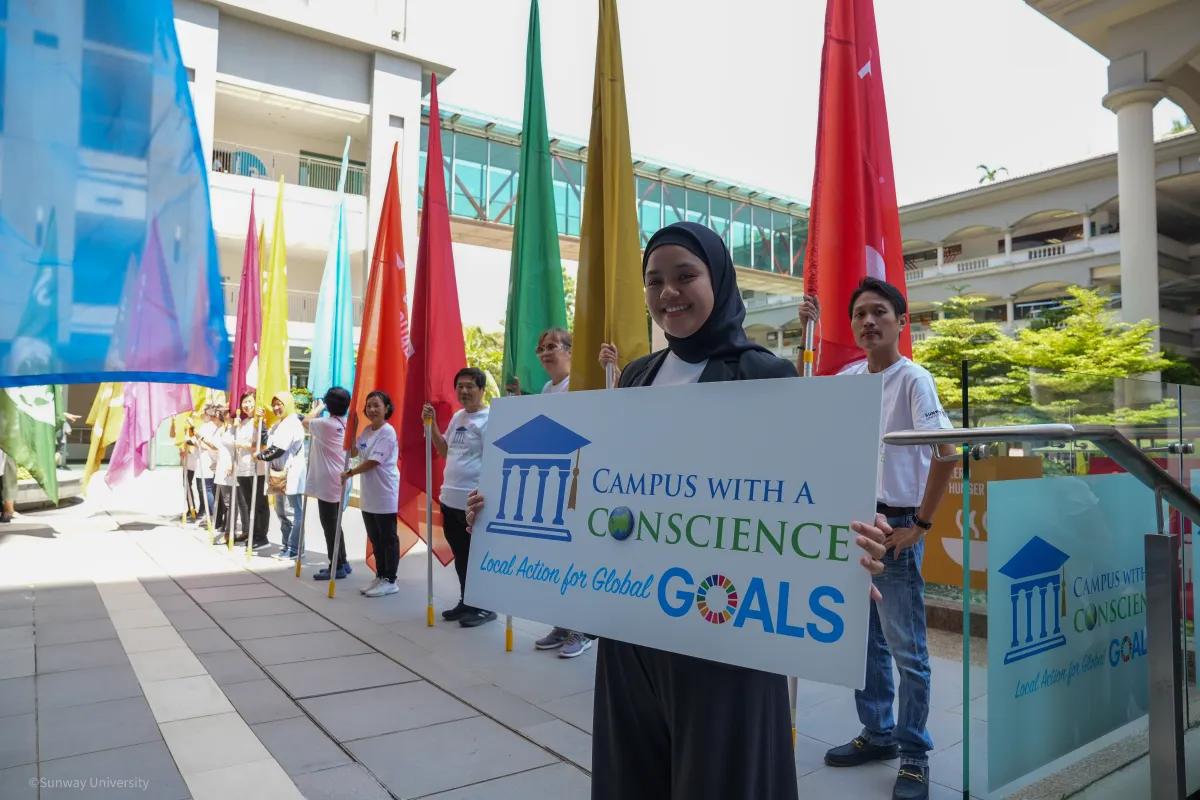Nurturing Sustainable Futures
Higher education is a powerful force in seeking knowledge and personal growth. However, given our planet's challenges, the spotlight on sustainability in higher education has become more crucial than ever. This article highlights the potential of educational institutions, envisioning them as agents of change by instilling environmental awareness, ethical practices, and a commitment to global stewardship in the minds of future leaders.
Integrating sustainability principles into everyday learning within academia is not just a nice to have but a necessity. Courses and modules across various disciplines can and should seamlessly incorporate aspects of environmental awareness, moving beyond textbooks to instil a foundational sense of responsibility among aspiring professionals. Sustainability-focused modules must cover multiple topics, from climate science to ethical decision-making. Encouraging collaboration across disciplines will ensure students gain a well-rounded understanding of the complexities of sustainability.
Beyond formal learning, campuses can become living examples of sustainability. Sunway University is currently ranked 189th in the UI Green Metric for Most Sustainable Universities worldwide. Institutions can become more sustainable by adopting energy-efficient technologies, waste reduction programs, and eco-friendly transportation. This reduces the ecological impact of institutions and provides students with tangible examples of sustainable living.
Experiential learning opportunities, like internships and community service projects, are significant as they expose students to real-world sustainability challenges, fostering a genuine commitment to responsible practices that extend to lifelong learning.
Universities, known for research and innovation, can play a significant role in addressing sustainability challenges. Research initiatives focused on renewable energy, tangible and intangible heritage conservation and preservation, and sustainable agriculture contribute practical solutions to real-world problems. Collaborations between academia, industry, and government amplify the impact of sustainability research. Encouraging a culture of curiosity and innovation among students opens doors to practical technologies and strategies promoting environmental well-being.
To address global challenges, students need more than just academic knowledge; they need a broad perspective on sustainability issues. International exchange programs, collaborative research projects, and partnerships expose students to diverse cultural approaches to environmental conservation. Understanding the interplay between ecological, social, and economic systems is crucial in our interconnected world. Higher education equips students with the skills and knowledge necessary to navigate complex global challenges and contribute meaningfully to international sustainability efforts.
Going beyond the classroom, higher education can inspire students to become advocates for sustainability. Institutions motivate students to engage in environmental activism, policy advocacy, and community outreach by nurturing a sense of civic responsibility. Empowered students are pivotal in raising awareness, shaping public discourse, and influencing sustainable policies.
With its ability to shape perspectives and influence societal values, higher education plays a vital role in sustainability. Educational institutions can nurture a generation of environmentally aware individuals by seamlessly integrating sustainability into curricula, championing sustainable practices on campuses, conducting impactful research, fostering global perspectives, and encouraging advocacy. Through these efforts, higher education becomes a catalyst for change, preparing students to tackle the multifaceted challenges of sustainability and contribute to a world that thrives sustainably.
Maslisa Zainuddin
School of Arts
Email: @email




